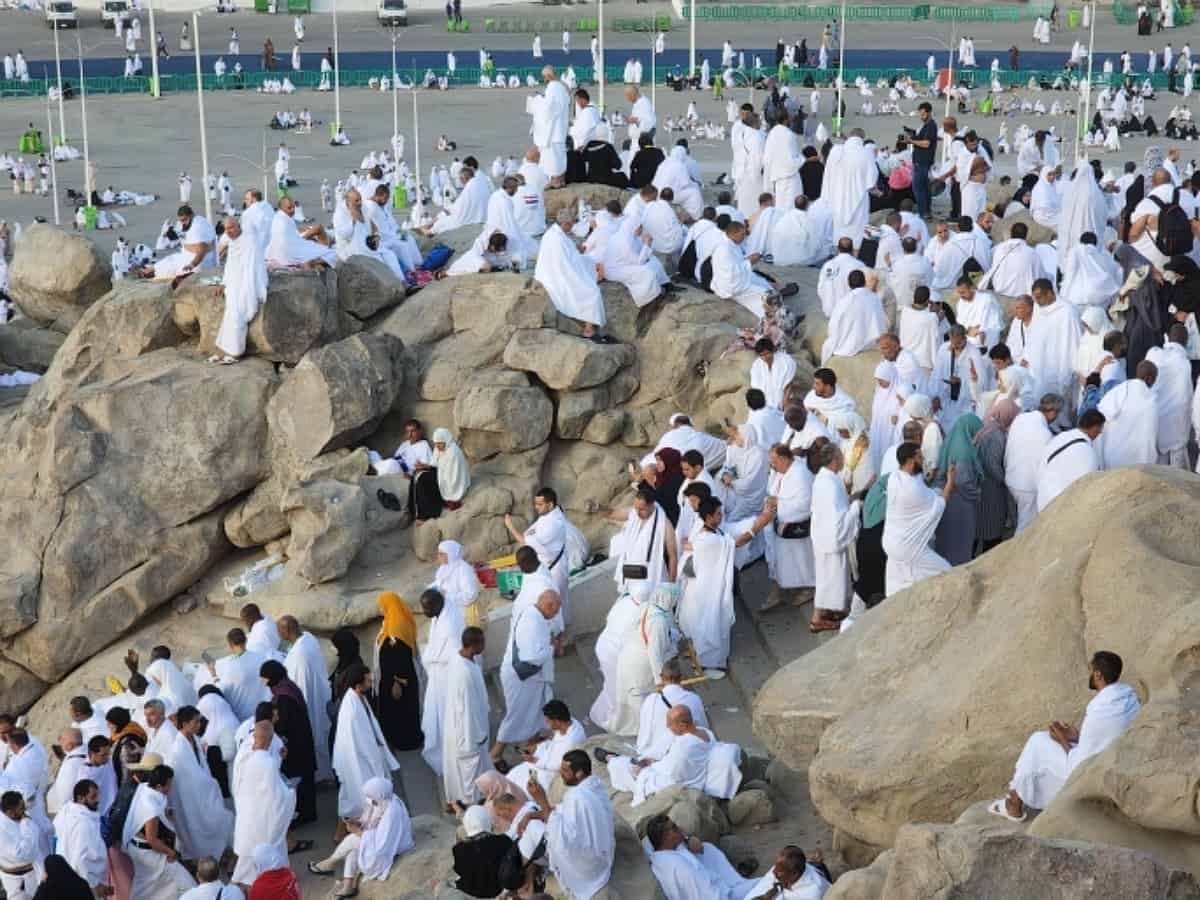
Riyadh: As the sun rose, nearly a million pilgrims flocked to Mount Arafat on Friday, the ninth Zul Hijjah to perform the greatest pillar of the Haj, after spending the day of Tarwiyah (water provision) in Mina in Makkah Al-Mukarramah, the Saudi Press Agency (SPA) reported.
The Day of Arafat marks the second day of Haj when believers make their way to the mountain where the Prophet Mohammed gave his last sermon.
At noon, pilgrims will make their way to the Namira Mosque to listen to the sermon of Arafat and perform the Zuhr and Asr prayers, both together and short, following the Sunnah of the Prophet Muhammad.

Pilgrims will then head to Muzdalifah after sunset, and then return to Mina on the morning of Saturday, July 9 or tenth Zul Hijjah (the day of sacrifice, the first day of Eid Al Adha) to stone Jamrat al-Aqabah and sacrifice, then shave or shorten and their hair to Makkah to perform the tawaf al-ifaadah.
Pilgrims spend in Mina the three days of Tashreeq (11th, 12th and 13th of Zul Hijjah) to stone the three Jamarat, starting with the small, middle and then Jamarat Al-Aqaba (the Great).
Since Wednesday, July 6, the attention of the Islamic world has turned to Makkah Al-Mukarramah, where the largest pilgrimage rites since the outbreak of the COVID-19 pandemic began, and thousands of pilgrims performed the circumambulation of the Kaaba in Makkah Al-Mukarramah. The rituals of Haj begin on the eighth day of Zul Hijjah and last for 5 days.
The Saudi authorities announced that one million Muslims including 850,000 performed Haj for the current year, most of them from outside the Kingdom, while their number in the last Haj season before COVID-19 was about 2.5 million Muslims from all over the world.
This year’s Haj is for the age group less than 65 years, with the requirement to complete immunization with basic doses of COVID-19 vaccines approved by the Saudi Ministry of Health.
The pilgrimage to Makkah is one of the five pillars of Islam, and it is considered obligatory for Muslims to perform it at least once during their lifetime if they can afford it.
